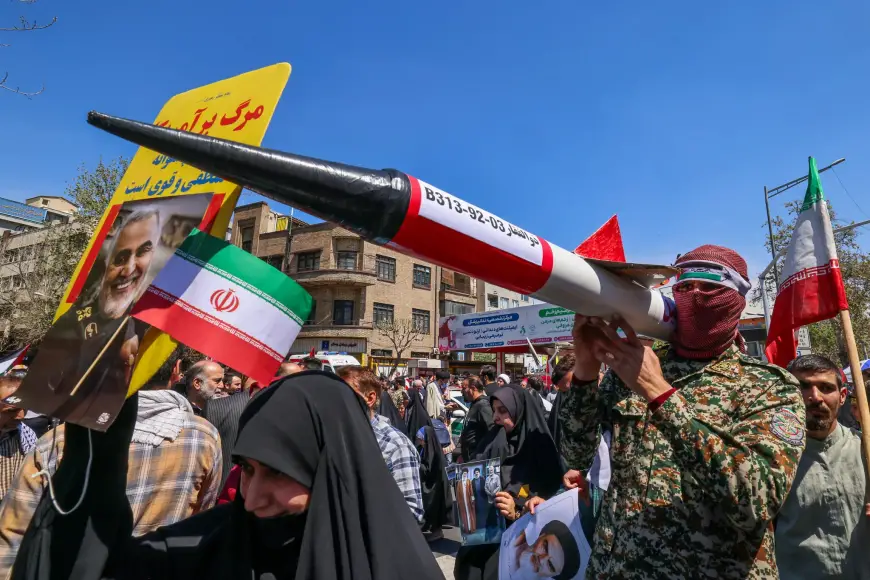Iran Hints at U.S.-Mediated Talks Amid Israel Conflict as Airstrikes Continue
Iran expresses willingness to talk with the U.S. while Israel escalates military strikes. Here's a full report on diplomacy, casualties, and global responses.

In a potentially game-changing development, Iran has indicated a willingness to engage in talks with the United States amid its escalating confrontation with Israel. As military strikes continue across key targets in both nations, the international community is ramping up efforts to de-escalate what could spiral into a broader regional war. Despite active hostilities, a diplomatic window may be emerging.
Iran’s Surprising Shift: A Diplomatic Opening
According to recent high-level briefings and foreign policy reports, Iran’s Foreign Minister Abbas Araghchi has expressed tentative openness to meeting with U.S. representatives, potentially in a neutral venue such as Geneva. The move follows escalating military exchanges with Israel and growing pressure from Gulf neighbors and global stakeholders.
While Tehran has not officially confirmed the terms, sources close to Iranian diplomatic circles suggest that such a meeting could be facilitated through U.S. envoy Steve Witkoff or even Vice President J.D. Vance. This shift represents a rare pivot for Iran, long resistant to direct talks under duress, and suggests a growing recognition of the risks of sustained escalation.
The Military Theatre: Airstrikes and Retaliation
The situation on the ground remains volatile. In the last 72 hours:
-
Israel launched precision airstrikes targeting Tehran’s nuclear infrastructure and key communication hubs, including the headquarters of Iran’s state broadcaster.
-
Iran responded by launching over a dozen ballistic missiles toward Israeli territories, many of which were intercepted by Israel’s Iron Dome defense system.
-
Civilians in both nations are bearing the brunt. The civilian death toll in Iran has surpassed 580, while at least 24 casualties have been confirmed in Israel.
Satellite imagery and third-party monitoring suggest that Israel has achieved temporary air dominance over Iranian airspace, a feat that significantly weakens Iran’s strategic capabilities in the short term.
U.S. Role: Strategic Silence or Calculated Entry?
Former President Donald Trump, speaking at a press event, refused to commit to immediate intervention. His statement, “I may do it, I may not do it,” underscores the ambiguity surrounding U.S. intentions. While the administration has condemned Iran’s missile attacks, it has stopped short of committing boots on the ground or direct military support.
However, reports indicate back-channel discussions are underway, with the U.S. National Security Council exploring scenarios ranging from targeted sanctions relief to coordinated peace-building talks involving G7 allies.
International Response: Diplomatic Pressure Mounts
The G7 nations have issued a joint statement urging both Israel and Iran to de-escalate tensions and return to the negotiation table. The European Union has also initiated discussions with Iran’s foreign ministry to facilitate ceasefire conditions and address nuclear safety concerns.
Germany, France, and the UK are pushing for an emergency session of the UN Security Council to address violations of international airspace and the humanitarian crisis developing in Iran’s central provinces.
Humanitarian and Economic Fallout
The conflict’s toll is not only military. Oil prices have shown volatility amid fears of shipping disruptions in the Strait of Hormuz. Maritime tracking systems have reported widespread interference in the region, affecting over 1,000 vessels.
Inside Iran, electricity and internet outages are increasingly common due to sustained infrastructure damage. Hospitals are operating under wartime protocols, and Iran’s Red Crescent has called for international medical assistance.
What Lies Ahead: War or Peace?
While the violence shows no signs of immediate cessation, Iran’s willingness to engage diplomatically marks a shift that could shape the trajectory of this conflict. Whether this results in a genuine ceasefire or temporary relief remains uncertain.
Israel’s military advantage is real, but sustained warfare risks drawing in regional actors and triggering broader instability across the Middle East. If the U.S. successfully mediates a round of peace talks—however informal—it may mark a turning point.
For now, the world watches and waits.














